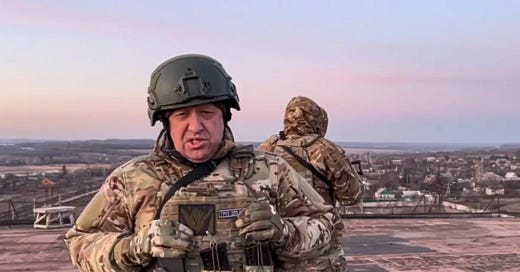In his Chesney Memorial Lecture in October 1973, called Military Science in an Age of Peace, Sir Michael Howard described the impact of surprise, and the necessity of military institutions to prepare their people to absorb, and adapt around, it. He noted that:
This is an aspect of military science which needs to be studied above all others in the Armed Forces: the capacity to adapt oneself to the utterly unpredictable, the entirely unknown.
Surprise is a key continuity in human competition and warfare. The desire to surprise an adversary is central to the Eastern and Western traditions of war. The aim is to shock an adversary and overwhelm them when they are their weakest or when they least expect it. The Chinese strategist, Sun Tzu, wrote in On War that forces should “go forth where they do not expect it, where they are not prepared.” And Sir Lawrence Freedman, one of the greatest living strategists, has written that, “a surprise attack, conceived with cunning, prepared with duplicity and executed with ruthlessness, provides international history with its most melodramatic moments.”
But as Sir Lawrence notes, surprise is not just a battlefield event. It occurs at all levels of war, from the tactical to the political. Entire nations can be surprised, and he describes how “a state believes itself to be at peace then suddenly finds itself at war, in agony and embarrassed that it failed to pick up the enemy plot.”
Prigozhin Crosses the Rubicon
The events of the past 24 hours in Russia have again highlighted this enduring aspect of human conflict. While Prigozhin has been slowly elevating the level of bitterness and bile in his video ‘chats’ for some time, his latest pronouncements have probably seen him cross red lines for Russia’s leadership.
In many respects, this represents his crossing the Rubicon moment. And while we don’t know his endgame, it is an apt comparison to Julius Caesar’s crossing of the Rubicon River in early January 49 BC and which precipitated a civil war.
In an audio statement in the past 24 hours, Prigozhin stated that:
The current situation: today, we were dealt a missile strike. After this strike, helicopters did their work. Then, artillery. The orders were coming from the Head of General Staff to destroy PMC Wagner. After a meeting with the Minister of Defence Shoygu where they made this decision - to destroy the rebellious units, who are ready to defend the motherland, but not their asses…We do not fight with children. We do not kill children. Shoygu is killing children by throwing untrained soldiers, conscripts included, into the war…We only fight with professionals. But if someone stands in our path, we will destroy EVERYTHING in our way.
(Translation provided by @WarTranslated)
Keep reading with a 7-day free trial
Subscribe to Futura Doctrina to keep reading this post and get 7 days of free access to the full post archives.




